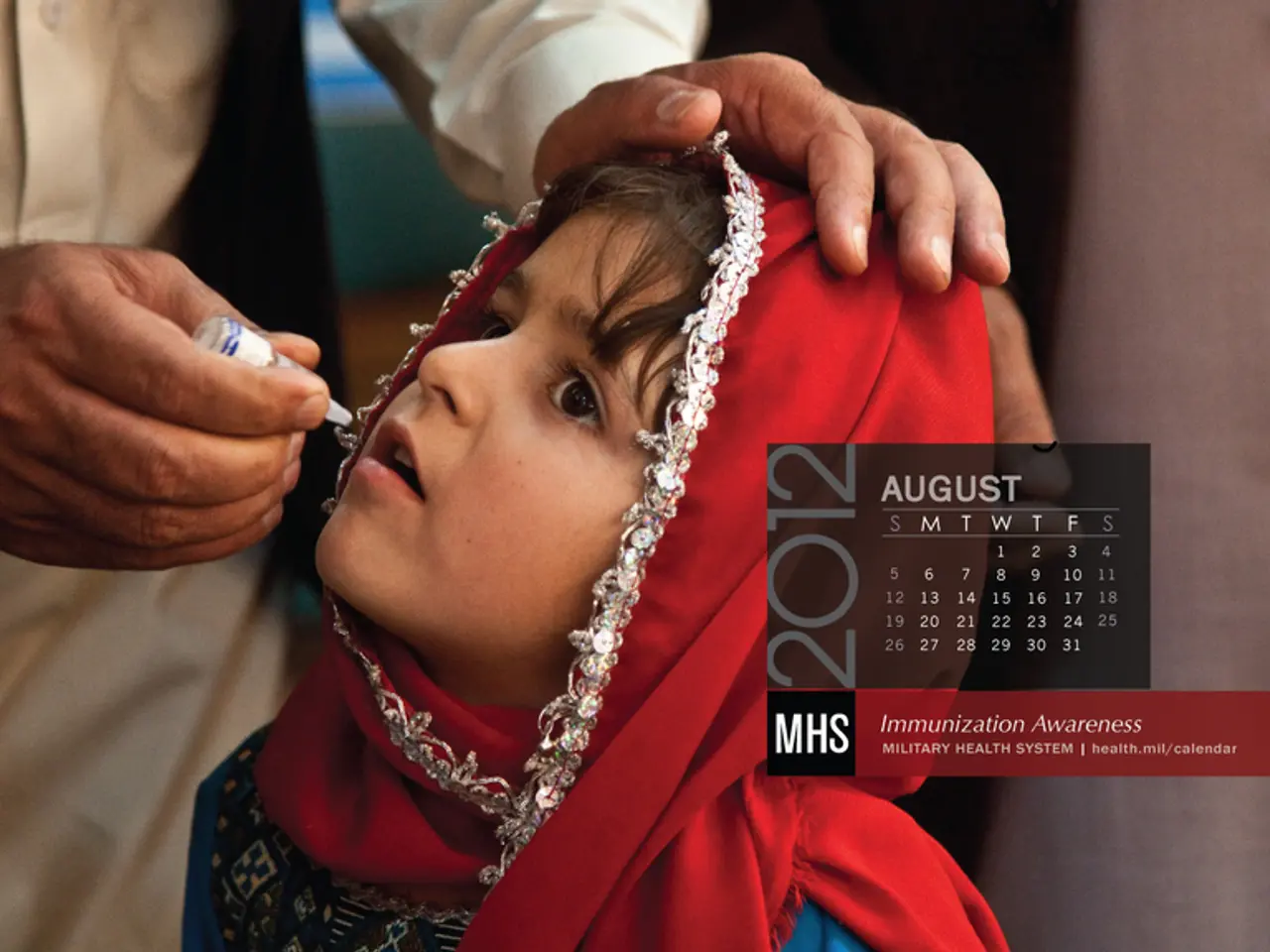Therapies for COVID-19: Medications, household remedies, and additional options
In the fight against COVID-19, various treatment options and preventive measures have emerged to help manage the disease and reduce its impact on individuals and communities.
For those experiencing mild to moderate symptoms at home, the focus is on symptom management and preventing progression. This can involve symptomatic relief with fever reducers and pain relievers, early use of inhaled corticosteroids like budesonide, and the potential use of antiviral medications such as Paxlovid (nirmatrelvir/ritonavir) for high-risk adults to prevent progression to severe disease.
In hospital settings, the approach for severe COVID-19 cases, particularly those with hypoxia or requiring oxygen support, is more intensive. Dexamethasone, a corticosteroid, is a mainstay for severe cases, as it helps manage symptoms by reducing inflammation. Remdesivir (Veklury), an antiviral, is also approved for hospitalized COVID-19 patients, targeting viral replication to reduce viral load and accelerate recovery.
Dexamethasone plays a critical role in reducing mortality by controlling the inflammatory immune response in severe COVID-19 hospitalized patients, while Remdesivir targets viral replication. Early antiviral treatment at home (e.g., Paxlovid) can prevent disease worsening and hospitalization. Combination and extended antiviral therapies show promise in difficult cases.
To prevent infection with the virus that causes COVID-19, individuals can limit contact with others, maintain social distancing, wear face coverings, avoid touching the face, and practice good hygiene. If symptoms or potential exposure occur, a test should be booked.
It's important to note that a person can have the virus for a period before symptoms appear, and some people never have symptoms, but they can still pass on the virus. Hydroxychloroquine is not a safe option for COVID-19 treatment due to the risk of serious and potentially life-threatening heart rhythm problems.
Monoclonal antibody treatments, such as casirivimab and imdevimab, and a combination of bamlanivimab and etesevimab, have been granted emergency use approval by the Food and Drug Administration (FDA) to help people avoid the need for hospital treatment if they have mild to moderate symptoms of COVID-19 but a high risk of developing severe symptoms.
Approximately half of people who develop COVID-19 symptoms do not require hospital treatment. However, people with severe symptoms may need to spend time in the hospital and may receive treatment such as oxygen therapy, ventilator support, and antiviral drugs.
The most common symptoms of COVID-19 include fever, chills, cough, shortness of breath, fatigue, body aches, headache, new loss of smell or taste, sore throat, congestion, nausea or vomiting, and diarrhea. If a person starts to experience breathing difficulty, ongoing pain or pressure in the chest, confusion, difficulty waking or staying awake, a blue tinge to the lips or face, or other severe symptoms, emergency medical help should be sought immediately.
COVID-19 can also lead to complications such as kidney failure, shock, blood clots, and sepsis. As there is currently no cure for COVID-19, these treatments aim to help manage the disease and reduce its impact.
[1] [https://www.ncbi.nlm.nih.gov/pmc/articles/PMC7228672/] [2] [https://www.fda.gov/emergency-preparedness-and-response/coronavirus-disease-2019-covid-19/paxlovid-covid-19-treatment] [3] [https://www.fda.gov/emergency-preparedness-and-response/coronavirus-disease-2019-covid-19/monoclonal-antibody-therapies-treatment] [4] [https://www.ncbi.nlm.nih.gov/pmc/articles/PMC7338884/] [5] [https://www.fda.gov/emergency-preparedness-and-response/coronavirus-disease-2019-covid-19/remdesivir-covid-19-treatment]
Vaccine and immunizations/vaccines, such as Paxlovid (nirmatrelvir/ritonavir and monoclonal antibody treatments like casirivimab and imdevimab, are potential treatment options for COVID-19, aimed at preventing progression to severe disease or reducing hospitalization. Science and health-and-wellness are crucial in developing these therapies-and-treatments for managing symptoms of COVID-19, including fever, cough, and shortness of breath, and in preventing infection via measures like social distancing and the use of immunizations.




